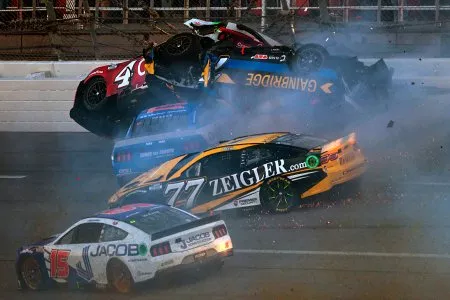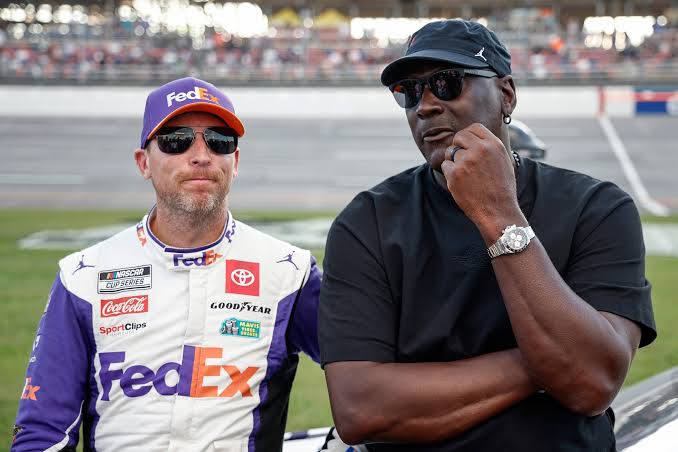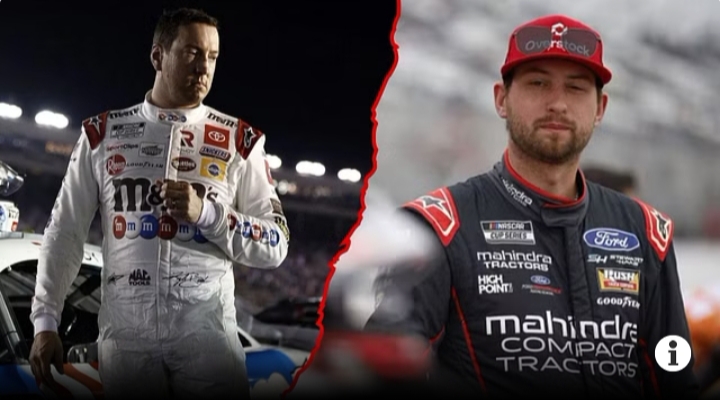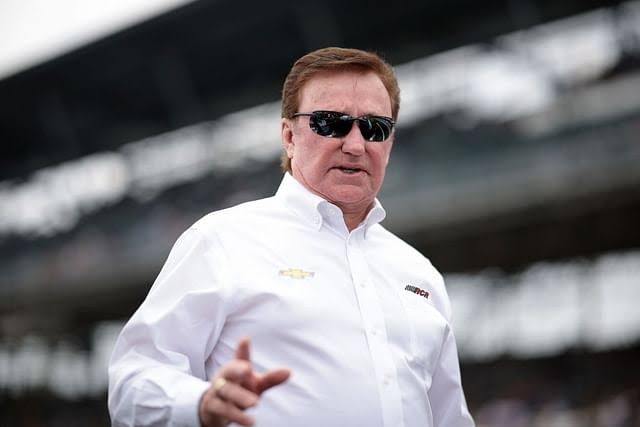NASCAR President Steve Phelps has faced intense scrutiny following a controversial decision during the YellaWood 500 at Talladega Superspeedway. The incident revolved around NASCAR’s Damaged Vehicle Policy (DVP), which has been in place since 2017 but became the focus of heated debate after a chaotic crash involving 28 cars. The decision to alter the policy mid-race sparked widespread criticism, especially from drivers and teams impacted by its inconsistent application.
The controversy unfolded after the crash left key playoff drivers Chase Elliott and Chase Briscoe facing disqualification under the existing rules. Typically, the DVP prohibits cars from returning to the track if they are towed unless all four tires are flat. However, NASCAR made an exception, towing both drivers back to pit road and allowing them to continue racing. This unexpected deviation created confusion and dissatisfaction among other competitors, raising questions about the policy’s fairness and practicality.
The DVP was designed to prioritize safety by preventing heavily damaged vehicles from re-entering the race. However, the Talladega incident highlighted its complexity and exposed areas needing improvement. Addressing the issue, Steve Phelps defended NASCAR’s handling of the situation, stating, “There are no such things as do-overs.” He acknowledged the need for constant evaluation and potential adjustments, hinting at changes to be implemented by the 2025 season.

“For example, we’re looking at the damaged vehicle policy… there’s nothing we did that wasn’t consistent with the rules as they stand. But it’s something we’ll examine and potentially tweak for 2025,” Phelps explained. His remarks suggest NASCAR’s commitment to refining policies to ensure clarity and fairness moving forward.
The Talladega controversy is one of several challenges NASCAR has faced in 2024. Allegations of race manipulation during the Martinsville Speedway events resulted in severe penalties, including fines totaling $600,000. Additionally, NASCAR is dealing with a significant legal battle involving an antitrust lawsuit from 23XI Racing and Front Row Motorsports, accusing the organization of monopolistic practices through its charter system. While Phelps declined to comment on the lawsuit, it adds to an already tumultuous season.
Despite these setbacks, NASCAR continues to push initiatives aimed at growing the sport, including the debut of the Chicago Street Race, which incurred substantial costs but demonstrated the organization’s commitment to innovation. Moving forward, NASCAR plans to strengthen its rulebook by addressing race manipulation and revising the DVP, with changes expected for 2025. According to Chief Operating Officer Steve O’Donnell, these updates aim to protect the sport’s integrity and enhance its fairness.




